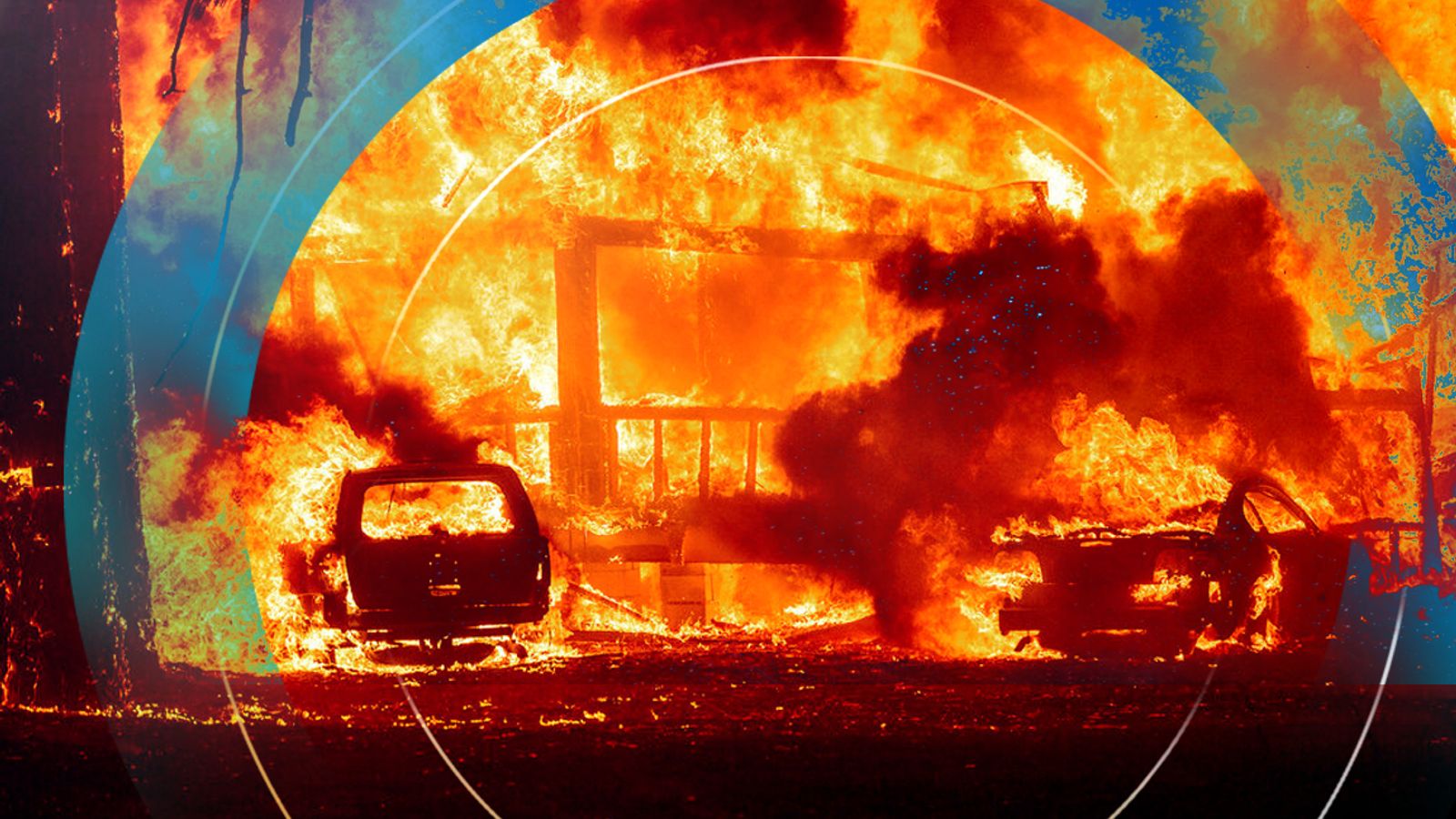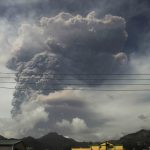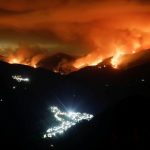Devastating wildfires that have ravaged parts of the northern hemisphere this summer have released soaring amounts of carbon, EU data shows.
The unprecedented Siberian fires have this season already emitted far more greenhouse gases (953 MtCO2e) than the equivalent Germany releases in a year (702 McCO2e in 2019).
Meanwhile the deadly and disruptive wildfires around the Mediterranean have released more carbon than in the previous 13 years – and the amount will rise further still until the end of August.
EU scientists have collected the data every year since 2003.
Dr Mark Parrington, senior scientist at the EU’s Copernicus Atmosphere Monitoring Service (CAMS), said the number of fires and size of the areas affected had been “very striking”.
“In recent years we have seen some very large and intense fires in different parts of the world (including North America and Siberia) but very rarely at the same time with such persistence,” he said.
Fires are a natural part of the ecology of many ecosystems. But climate change has increased the probability of extreme hot and dry conditions that give rise to bigger, faster moving and more intense wildfires.
And the fires themselves are in turn emitting enormous amounts of planet warming carbon – including carbon dioxide, soot and methane – that could further accelerate global warming.
William Baldwin-Cantello, director of nature based solution at WWF, called fires and climate change a “powerfully destructive combination”.
“One of the best responses we can make to these fires is to accelerate our reduction in global greenhouse gas emissions – this must go hand in hand with protection, restoration and sustainable management of forests,” said Mr Baldwin-Cantello.
Subscribe to ClimateCast on Spotify, Apple Podcasts, or Spreaker.
The emissions from fires are usually balanced by regrowth – via photosynthesis – so many fires can be carbon neutral in the medium-term, according to Dr Thomas Smith, associate professor in environmental geography at the London School of Economics (LSE).
But he said an “important question” was whether these ecosystems will recover, as the increased frequency of fires can prevent regrowth.
“If not, then the carbon will remain in the atmosphere, driving further climate change,” Dr Smith warned.
For comparison purposes, some data in the article has been converted to CO2e. The data in the table reflects carbon only.
Please use Chrome browser for a more accessible video player
Sky News has launched the first daily prime time news show dedicated to climate change.
The Daily Climate Show is broadcast at 6.30pm and 9.30pm Monday to Friday on Sky News, the Sky News website and app, on YouTube and Twitter.
Hosted by Anna Jones, it follows Sky News correspondents as they investigate how global warming is changing our landscape and how we all live our lives.
The show also highlights solutions to the crisis and how small changes can make a big difference.






















